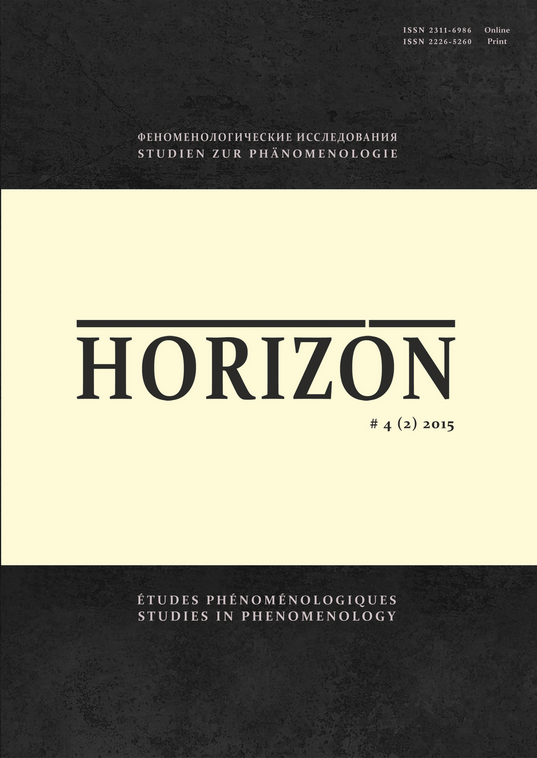ТЕОРЕТИЧЕСКО-ТЕКСТОЛОГИЧЕСКИЙ СЕМИНАР
ШЕЛЛИНГ И ФЕНОМЕНОЛОГИЯ
THEORETICAL-TEXTOLOGICAL WORKSHOP
SCHELLING AND PHENOMENOLOGY
24 June 2015, St. Petersburg State University, Institute of Philosophy
Author(s): ALEXEI KRIOUKOV, Andrei Patkul, Ekaterina AnanievaSubject(s): Aesthetics, German Idealism, Phenomenology, Hermeneutics
Published by: Издательство Санкт-Петербургского государственного университета
Keywords: Transcendental idealism; phenomenology; epoche; reduction; intellectual intuition; estheti¬cal intuition; intuition of essence; Schelling; Husserl; Heidegger
Summary/Abstract: This publication is a transcript of the first meeting of the theoretical-textological workshop dedicatedto the possibilities of the comparison of Schelling’s idealism (as a kind of German idealism after Kant)and the phenomenological movement. It was held on June 24, 2015 at the Institute of Philosophy atSt. Petersburg State University. To begin, the moderators of the workshop marked out several fieldsof future investigations. On the one hand, it could be the use of Schelling’s transcendental theoryof subjectivity in the framework of its phenomenological theory. One ought to mention the followingmain notions of Schelling’s transcendental philosophy, which could be reinterpreted in the contextof the phenomenological doctrine of the subjectivity: intellectual intuition (in connection withthe phenomenological concept of intuition of essence), concept of teleology of subjectivity, conceptsof transcendental history as well as transcendental past. On the other hand, Schelling’s concepts offact and facticity, immemorial being, existence, ecstasy, project could be of current relevance in buildingtoday’s phenomenological theories of the world, even of a possible phenomenological theology.As a starting point for the workshop the modern Austrian researcher Wolfgang Fasching article Transzendentaleund ästhetische Anschauung. Zur Selbstanschauung der konstituierenden Subjektivität beiHusserl und Schelling (Fasching, 2002) was chosen. During the discussion, the following topics andquestions were examined: the problem of the similarity of Schelling’s concept of the aesthetic intuitionand Husserl’s method of epoche, the peculiarity of the aesthetic conception by Schelling, and possibilityof the aesthetic contemplation by Husserl, the legality of Fasching’s interpretation of Husserl’s notionof “epoche” as an aesthetic act, and the role of self-contemplation for the subject structure.
Journal: Horizon. Феноменологические исследования
- Issue Year: 4/2015
- Issue No: 2
- Page Range: 284-322
- Page Count: 39
- Language: Russian

